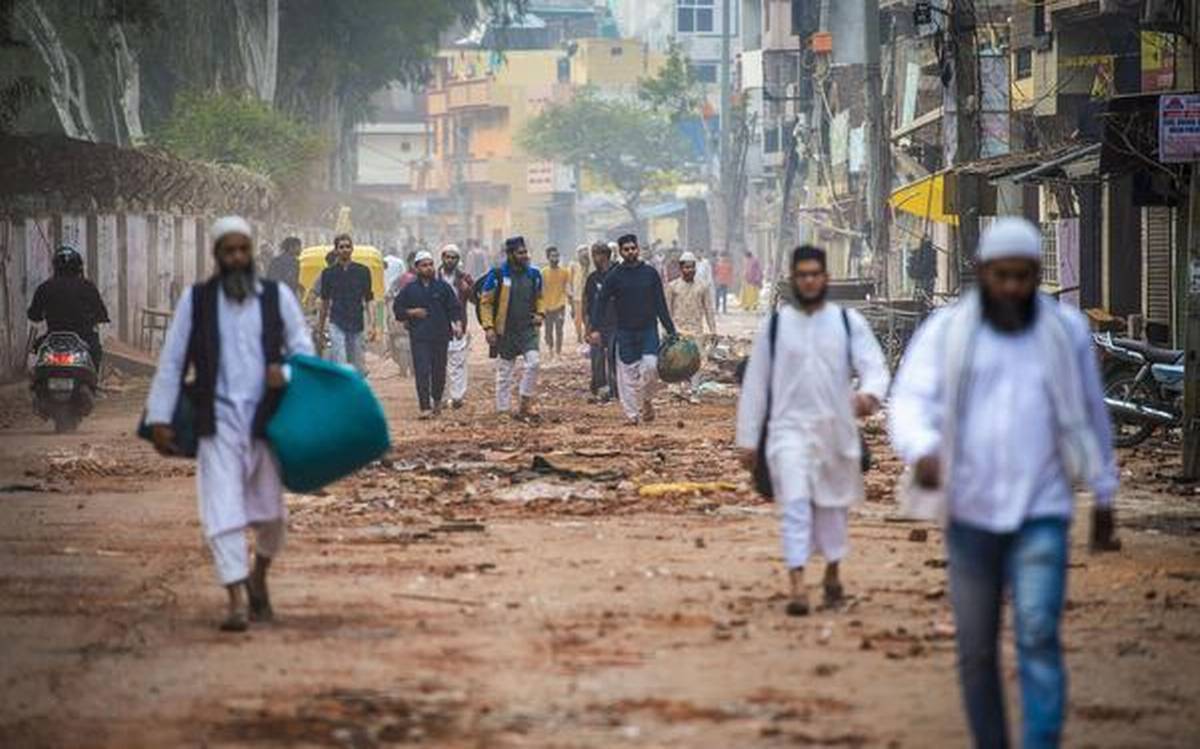NEW DELHI: The Delhi Police Monday opposed in the Delhi High Court a plea by former Congress municipal councillor Ishrat Jahan, booked under anti-terror law UAPA in a case related to communal violence in northeast Delhi in February, challenging a trial court order extending the time for completing the investigation by 60 more days.
The case came up for hearing through video conferencing before Justice Suresh Kait, who reserved the order on the plea of the accused challenging the trial court order extending time for completing the probe beyond 90 days.
Jahan was arrested on February 26.
Advocate Lalit Valecha, who appeared for her, sought setting aside the trial court’s order, saying it was “erroneous, bad in law and wrong on facts” and it was against the democratic and fundamental rights guaranteed by the Constitution.
However, Delhi Police counsel contended that the high court should not intervene in the matter as far as the order of the additional sessions judge, extending the time to probe the case, is concerned as there was no infirmity in it.
Jahan’s advocate contended that the prosecutor had not applied his mind while filing the application in the trial court.
While Delhi Government standing counsel (criminal) Rahul Mehra said he was authorised to represent the state and Delhi Police, advocate Amit Prasad claimed that he was appointed as Special Public Prosecutor by the LG to represent the police in riots cases.
The high court allowed both the counsel to argue and submit their respective status reports in the matter as it had made clear in an earlier hearing that it was not going to enter into the controversy of which lawyer will represent the police.
The high court has already reserved its order on the issue of who is authorised to represent police in another riots matter involving a school principal Faisal Farooq.
Mehra said the high court need not look into the reasons given by the prosecutor in the application, seeking extension of time to complete the probe, as it was for the sessions judge to look into.
“All the ingredients for extending the time are made out and there is no irregularity in the sessions judge’s order,” he argued.
Prasad contended that the petition does not make out a case and even no question of law is made out here and it be dismissed.
He said the reasons warranting extension of time to complete the investigation in the case has been tested twice, first by the public prosecutor and second by the trial court judge.
Central government standing counsel Amit Mahajan said he will place on record an order passed by another judge of the high court in the case of former JNU student Sharjeel Imam who had also challenged the order extending time to complete the probe in the UAPA case lodged against him in relation to his alleged instigating speeches during anti Citizenship (Amendment) Act and National Register of Citizens protests.
The high court on June 24 had asked the police to respond to Jahan’s plea challenging the trial court’s June 15 order granting a 60-day extension to police to complete its investigation against her and activist Khalid Saifi.
The trial court was informed that Saifi had allegedly travelled outside India and met persons including fugitive Zakir Naik, controversial Islamic preacher, to get funds for spreading his agenda and the investigation regarding this required more time.
Jahan, in her plea, claimed “The application by the prosecutor is an abuse of the legal process as the same fails to make out any legal or factual basis that justifies extension of time. This exercise is only to subvert and defeat the right of the petitioner to seek regular and statutory bail under the CrPC.”
“The order deserves to be set aside on this ground alone. Speedy and fair investigation are fundamental tenets of the criminal justice system…,” the plea has said.
The trial court, in its June 15 order, had said the prosecution has set out a case for extension of the statutory time period to conclude the investigation but the investigating officer was not divested of his obligation of concluding the probe expeditiously.
The trial court, which granted time till August 14 to conclude the pending investigation, had noted the police contention that Saifi got suspicious funds through a NRI account of a person, who is serving in Singapore, in the account of an NGO which he is running in partnership with his friend.
The police had sought extension of time till September 17 for concluding investigation against Jahan and Saifi, under section 43D (2) (b) of the anti-terror law.
Section 43-D (2) of Unlawful Activities (Prevention) Act (UAPA) provides that if it is not possible to complete the investigation within the 90 days period, then upon the report of the public prosecutor indicating the progress of the probe and the specific reasons for the detention of the accused beyond the 90 days period, after satisfaction, the court can extend the period of probe to 180 days.
Communal clashes had broken out in northeast Delhi on February 24 after violence between citizenship law supporters and protesters spiralled out of control leaving at least 53 people dead and scores injured. (AGENCIES)


